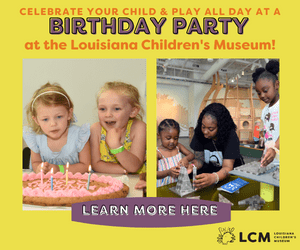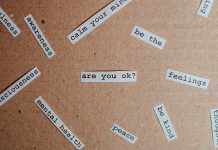Disclosure :: this post is sponsored by Touro Infirmary.
What You Need to Know About RSV {Respiratory Syncytial Virus}
 RSV are the 3 letters that no new parent wants to hear. Respiratory syncytial virus (RSV) is a highly contagious virus that can cause severe illness in children, especially infants. It’s the warning all parents with infants receive from their doctors this time of year. With the holidays, we all know that isolating your newborn as well as discouraging family and friends from getting close to your little one, can seem impossible. Touro Neonatologist Dr. Julie Gallois, shares the facts on RSV and the important signs and symptoms parents should know.
RSV are the 3 letters that no new parent wants to hear. Respiratory syncytial virus (RSV) is a highly contagious virus that can cause severe illness in children, especially infants. It’s the warning all parents with infants receive from their doctors this time of year. With the holidays, we all know that isolating your newborn as well as discouraging family and friends from getting close to your little one, can seem impossible. Touro Neonatologist Dr. Julie Gallois, shares the facts on RSV and the important signs and symptoms parents should know.
What is RSV?
RSV is a common, and very contagious, virus that affects children – especially those who are less than two years old. RSV causes mild, cold-like symptoms such as a fever, stuffy nose, cough, and trouble breathing and usually last one to two weeks. RSV season is typically during the cold weather months.
How do children get RSV?
RSV is an airborne virus and since it’s a very contagious, it can easily spread from person to person. Children can get it from direct contact with someone who has it or by touching infected objects such as toys or surfaces such as countertops.
Is RSV contagious?
Yes – RSV is contagious. It can be contagious even before kids have any symptoms. Typically, between two to eight days after you have contact with RSV is when your child would start showing the virus symptoms. When they have the virus, they are typically contagious between three and eight days, so they can pass on the virus to someone else before they even know they have it.
What should parents do if they think their child has RSV?
Parents should treat RSV like a typical cold. Treatment could include nasal saline with a gentle suctioning to help the kids breathe easier. Some parents find that a cool mist humidifier is helpful. Fluids and frequent feedings are important. If they have a fever, anything over 100.4, parents can give their kids acetaminophen, of if they are over six months old, they can give them Motrin or ibuprofen.
When to see a doctor
Contact your baby’s doctor if you notice any of the following RSV symptoms: a high-pitched whistling or wheezing noise when they breathe, being unusually upset or inactive, a cough with yellow, green, or gray mucus, trouble breathing or pauses in their breaths, refusing to breastfeed or bottle-feed, and signs of dehydration, such as lack of tears when crying, little or no urine in their diaper for 6 hours, and cool, dry skin.
If your child has a consistent fever for about five to seven days, contact your baby’s doctor immediately. A prolonged fever could be the sign of a secondary infection, such as an ear infection. Ear infections are common after RSV.
What children are at highest risk for severe RSV?
The chance of a severe infection is highest for babies born prematurely, children younger than 2 who were born with heart or lung disease, infants and young children whose immune systems are weakened because of illness or medical treatment, and children under eight to 10 weeks old.
What can parents do to protect their children from RSV?
It’s just keeping your child in an environment where people are healthy, limit exposure to crowds, handwashing is key, and wiping everything down with sanitizer when you’re in an environment around sick people. If able to do so, give your baby breast milk since breast milk has antibodies that can help fight off infection.
With so many airborne illnesses this time of year, it’s important you and your child have regular checkups with a primary care provider. Educate your family and friends on the risk of RSV and encourage good hand hygiene. If you have any questions or concerns about RSV, always contact your child’s doctor immediately.
Touro Infirmary
Website | Facebook | Twitter | Instagram
About the author
 Dr. Julie Gallois is a Neonatologist in Touro’s NICU.
Dr. Julie Gallois is a Neonatologist in Touro’s NICU.
















